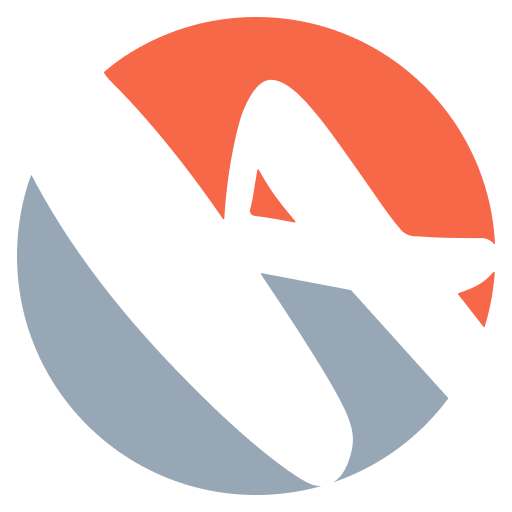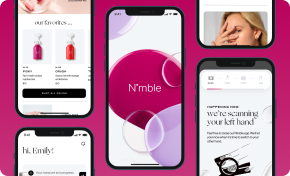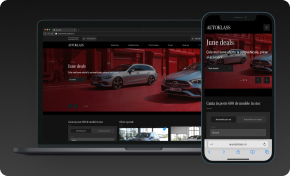Effective Customer Relationship Management (CRM) has become crucial for companies striving to gain a competitive edge. Building and maintaining solid relationships with customers can be a challenging endeavor. As technology evolves, so do the expectations of customers, who now demand instantaneous and personalized interactions. Therefore, having a ChatGPT CRM Integration is a game-changer for businesses.
Redefine Your IT Strategy with Our Consultancy
Customized Solutions for Optimal Performance
Discover IT ConsultingIn this article, we explore how the integration of ChatGPT can elevate CRM systems and help businesses overcome modern-day CRM challenges. For more case uses of ChatGPT, you can delve into 10 ChatGPT Web App Integrations for Your Business article.
The Modern-Day Challenges of CRM Systems
CRM systems are indispensable tools for businesses, but they come with their own set of challenges. Customers’ expectations are instantaneous and personalized responses, which can be a significant problem for businesses using traditional CRM systems.
Data Management
One of the foremost challenges in CRM systems is efficient data management. Businesses accumulate vast customer data, including contact information, purchase history, and interaction records. Keeping this data organized, up-to-date, and easily accessible is difficult. Inaccurate or outdated data can lead to communication errors and lost opportunities, while redundant data entry tasks can be time-consuming and prone to errors.
Real-Time Response
Customers expect immediate responses to their queries and concerns in today’s fast-paced digital era. The challenge lies in providing real-time responses consistently, round the clock. Human agents may struggle to meet these expectations, especially during peak periods or outside regular business hours. The inability to provide quick solutions can result in customer frustration and potentially harm your brand’s reputation.
Streamlining Sales Processes
CRM systems are essential for managing sales pipelines and customer interactions, but streamlining these processes can be a complex task. Sales teams require tools that help them track leads, prioritize opportunities, and close deals efficiently. An ineffective CRM system can lead to disjointed sales processes, missed opportunities, and a lack of visibility into the sales pipeline, hindering growth.
Streamlining Your Path to Effective Product Discovery
Make Your Ideas a Reality in Four Weeks with Our Results-Driven TechBoost Program
See Product Discovery ServicesIncreasing Customer Expectations
Perhaps the most significant challenge facing businesses today is meeting the ever-increasing expectations of customers. Customers now demand instantaneous and personalized responses. They want interactions tailored to their preferences, past behaviors, and current needs. Meeting these expectations is crucial for retaining customers and ensuring their continued loyalty.
Customers are no longer satisfied with generic responses or lengthy wait times. They expect businesses to understand their individual needs and provide solutions that address them promptly. This level of personalization enhances customer satisfaction and plays a crucial role in building lasting relationships.
The Power of ChatGPT in CRM
ChatGPT’s unique strength lies in its capacity to comprehend the context of conversations and craft both contextually relevant and exceptionally coherent responses. This means that ChatGPT CRM Integration enables the system to analyze the entire conversation history, grasp nuances, and respond in a manner that mirrors human interaction.
Unlike traditional CRM systems, which often rely on rigid templates or scripts, ChatGPT CRM Integration allows for dynamic adaptability to each customer’s unique needs and queries. It can comprehend complex inquiries, address follow-up questions, and even discern user intent, all while maintaining a conversational flow that closely resembles human conversation.
The incorporation of ChatGPT into CRM systems introduces an array of benefits that profoundly enhance CRM functionalities within the business context:
Experience the Power of Custom Software Development
Transformative Software Solutions for Your Business Needs
Explore Custom Software- Real-Time Customer Engagement: ChatGPT CRM Integration empowers businesses to engage with customers in real-time, offering immediate responses to inquiries and issues. Whether addressing common questions, troubleshooting issues, or providing information about products and services, ChatGPT’s fast response times ensure customers promptly receive the information they seek. This capability is invaluable in today’s world of instant gratification, ensuring that customers receive swift assistance and support, enhancing their overall experience with your brand.
- Personalization at Scale: Integrating ChatGPT in business enables your system to analyze extensive customer data, including past interactions, purchase history, and preferences. This wealth of information allows ChatGPT to provide personalized recommendations, responses, and solutions on a large scale. Customers benefit from tailored experiences that strengthen their connection with your brand, increasing loyalty and improving conversion rates.
- 24/7 Availability: Unlike human agents who adhere to fixed working hours, ChatGPT CRM Integration ensures round-the-clock availability 24/7. This accessibility guarantees that customers can reach out for assistance anytime, including weekends and holidays, showcasing your unwavering commitment to customer service and significantly boosting customer satisfaction.
- Efficient Issue Resolution: Integrating ChatGPT with your CRM system equips your businesses to address various customer inquiries and issues efficiently. It can troubleshoot problems, provide step-by-step guidance, and even escalate complex issues to human agents when required. This streamlining of the customer support process leads to faster issue resolution and heightened customer satisfaction.
- Data-Driven Insights: The incorporation of ChatGPT in your business brings a wealth of data-driven insights. ChatGPT can analyze customer interactions, sentiment, and trends, providing valuable information businesses can leverage to make informed decisions. These insights enhance products, services, and overall customer experiences.
Practical Implementations of ChatGPT in CRM
Practical implementations are essential to harness the full potential of ChatGPT in Customer Relationship Management (CRM). One of the key aspects of these implementations is how ChatGPT can be integrated seamlessly into CRM platforms using OpenAI APIs. In this section, we will delve into the technical aspects of this integration and explore the manifold advantages it brings to CRM processes.
Integration with OpenAI APIs
ChatGPT integration into CRM platforms is possible through OpenAI’s application programming interfaces (APIs). These APIs serve as the bridge that connects the language model’s capabilities to CRM systems, ensuring a harmonious fusion of AI-powered responses and CRM functionalities. The process involves linking ChatGPT to the CRM’s data sources, enabling it to access relevant customer information and engage in meaningful conversations.
Advantages of ChatGPT Integration in CRM
The integration of ChatGPT into CRM systems unlocks a host of advantages that can revolutionize how businesses manage customer relationships and streamline their operations:
- Automated Customer Data Analysis: ChatGPT CRM integration allows for automated customer data analysis. By going through vast amounts of information, including past interactions, purchase history, and preferences, ChatGPT can provide invaluable insights into customer behavior and preferences. This data-driven approach empowers businesses to tailor their interactions and marketing strategies more effectively.
- Enhanced Lead Processing: CRM systems are instrumental in managing sales pipelines and lead nurturing. ChatGPT integration takes this to the next level by assisting in lead processing. It can help prioritize leads based on their level of engagement and readiness to convert, allowing sales teams to focus their efforts more effectively and increase conversion rates.
- Streamlined Data Entry Processes: Data entry is a critical but often time-consuming aspect of CRM. ChatGPT CRM integration can streamline this process by automatically populating CRM fields based on customer interactions. This reduces the burden on human agents, minimizes errors, and ensures that CRM data remains up-to-date and accurate.
- Scalability: The integration of ChatGPT is highly scalable, accommodating the evolving needs of businesses, whether they are small startups or large enterprises. ChatGPT can seamlessly adapt as customer bases grow to handle increased inquiries and interactions, ensuring consistent customer support.
Case Studies: Successful CRM-ChatGPT Integrations
Real-world examples illustrate the substantial benefits of integrating ChatGPT into CRM systems. Numerous businesses have witnessed measurable improvements, such as increased sales, enhanced customer engagement, and reduced response times. These success stories underscore the potential of ChatGPT to revolutionize CRM processes.
According to McKinsey’s report on The economic potential of Generative AI, integrating ChatGPT into your business’s process can lead to a wide range of increased productivity, such as:
- Increased issue resolution by 14% per hour;
- Reduced time spent handling an issue by 9%;
- Reduced agent attrition and requests to speak with the manager by 25%.
Looking at the overall process, there is an estimated increased productivity in customer care functions at a value ranging from 30-45% of current functions costs. We need to consider that the precise impact of generative AI depends on various factors. This may include the industry’s specifics and revenue, the employee’s expertise in teaching ChatGPT, and expertise in seamless integration.
Salesforce
On 7th March 2023, Salesforce announced the launch of the world’s first generative AI CRM technology, Einstein GPT. It utilizes artificial intelligence to create personalized content for every sale, service, marketing, commerce, and IT interaction at an unprecedented scale. Einstein GPT provides users with out-of-the-box generative AI capabilities and creates custom-made content across every Salesforce cloud.
HubSpot
One of the leading CMR solutions companies also announced the integration of ChatGPT into their platform this July. This complements their own chat-based AI tool, known as ChatSpot. These chatbots, for sure, are transforming the way businesses interact with their audience online.
Redefine Your Business with Our R&D Services
Innovation Infused into Every Product Element Through R&D-Backed Development
Learn About R&D ServicesMicrosoft Dynamics
In a remarkable move this spring, Microsoft introduced Dynamics 365 Copilot – a generative AI chatbot for business users powered by OpenAI’s GPT-3. This chatbot works with Microsoft’s existing CRM and ERP software to help businesses draft email responses, create textual summaries of Teams meetings, and generate marketing and sales email campaigns.
Steps to Integrate ChatGPT into Your CRM System
Integrating ChatGPT into your CRM system holds the potential to revolutionize how your business manages customer relationships and interactions. However, following a structured approach is essential to ensure a smooth and successful integration. Here’s a concise guide on how businesses can begin the ChatGPT CRM integration process:
- Assessment and Planning:
- Start by assessing your CRM needs and identifying areas where ChatGPT integration can bring value. Consider your customer engagement goals, pain points, and desired outcomes.
- Formulate a clear integration strategy that aligns with your CRM objectives. Define the key performance indicators (KPIs) you aim to improve through ChatGPT integration.
- Partner with Software Experts:
- Emphasize the importance of consulting with software experts specializing in AI integration, like HyperSense. Experienced professionals can provide valuable insights and ensure a seamless integration process.
- Collaborate closely with software experts to define the scope of the integration, set realistic timelines, and establish a budget that aligns with your business goals.
- Data Integration:
- Work with your software experts to establish a secure connection between your CRM system and ChatGPT (server-side integration, front-end development). Ensure that ChatGPT can access the relevant customer data necessary to provide context-aware responses.
- Implement data privacy and security measures to protect sensitive customer information in compliance with industry regulations and best practices.
- Testing and Training:
- Before full deployment, conduct comprehensive testing of the ChatGPT CRM integration. Test various scenarios and customer interactions to ensure the integration aligns with your CRM objectives and performs reliably.
- Train your team on how to use ChatGPT effectively within the CRM system. Provide guidance on when and how to escalate complex inquiries to human agents when needed.
- Monitoring and Optimization:
- Once the integration is live, continuously monitor its performance. Track KPIs related to customer engagement, response times, and user satisfaction to measure its impact on your CRM processes.
- Collect user feedback and gather insights from the integration’s performance data. Use this feedback to identify areas for improvement and optimization.
- Scalability and Future Enhancements:
- Consider the scalability of your ChatGPT integration as your business grows. Ensure that it can handle increased volumes of customer interactions without compromising response times or quality.
- Stay informed about advancements in AI and ChatGPT technology. Periodically assess whether new features or enhancements can further improve your CRM processes and customer experiences.
Enhance User Experience with Our UX/UI Design Services
Crafting User-Centered Designs That Enhance Engagement and Maximize Conversions
Discover UI/UX DesignEmbracing the Future with ChatGPT CRM Integration
In conclusion, integrating ChatGPT in business offers an exciting opportunity for businesses to enhance customer relationship management. ChatGPT can provide instantaneous and personalized responses by addressing CRM systems’ modern challenges, leading to better customer engagement and increased sales.
To stay ahead of the competition and meet customers’ rising expectations, we encourage businesses to embrace ChatGPT CRM integration. With the proper planning and integration partner, businesses can unlock the transformative potential of ChatGPT. This will ultimately revolutionize their CRM processes and strengthen customer relationships.
Let’s delve together into this complex transformative journey of your business.










